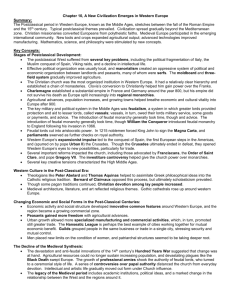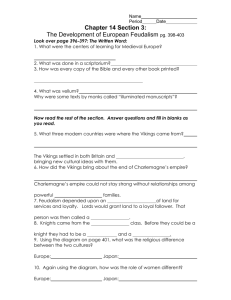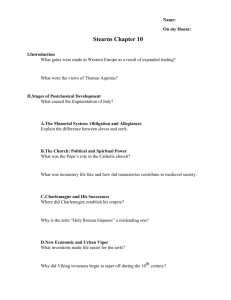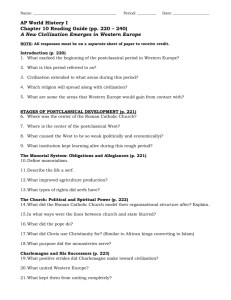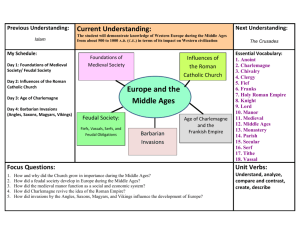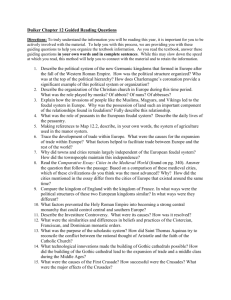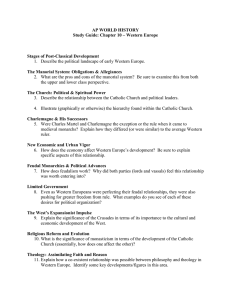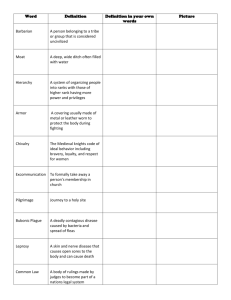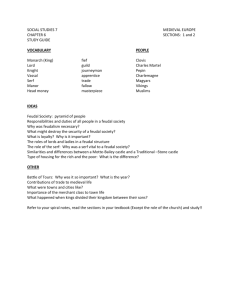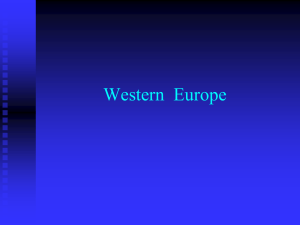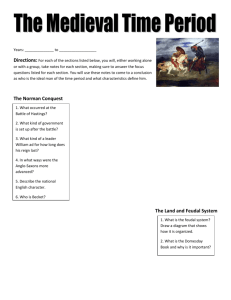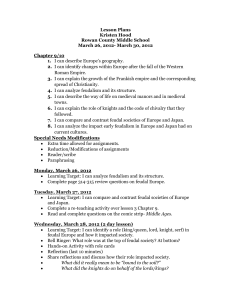espirit - Davis School District
advertisement
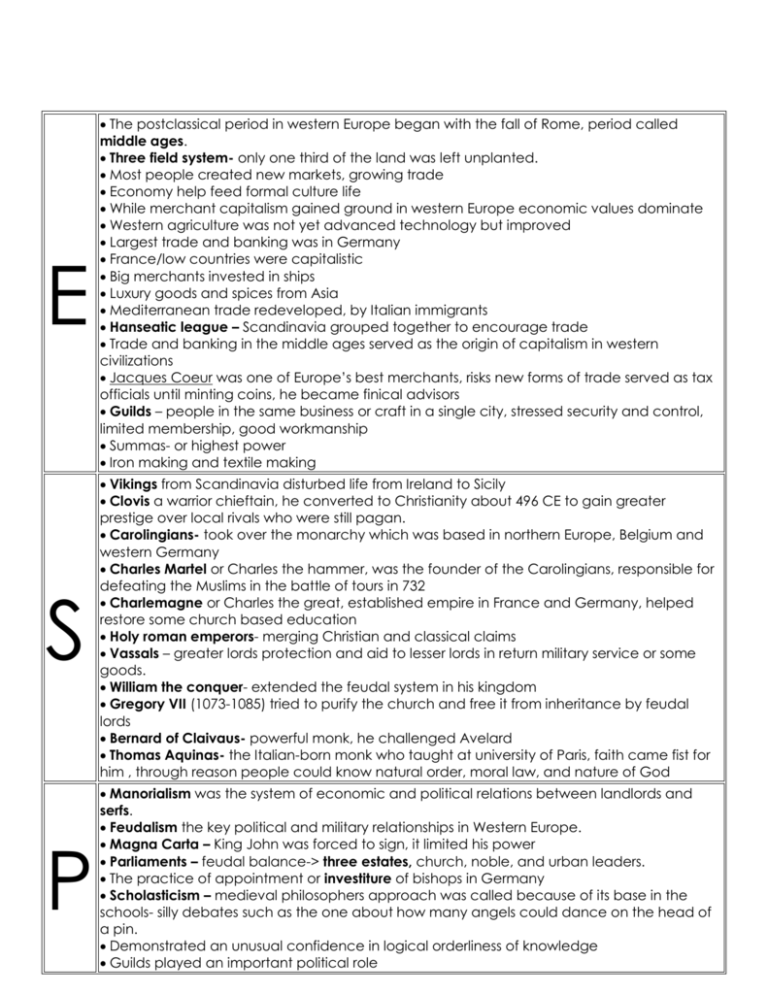
E The postclassical period in western Europe began with the fall of Rome, period called middle ages. Three field system- only one third of the land was left unplanted. Most people created new markets, growing trade Economy help feed formal culture life While merchant capitalism gained ground in western Europe economic values dominate Western agriculture was not yet advanced technology but improved Largest trade and banking was in Germany France/low countries were capitalistic Big merchants invested in ships Luxury goods and spices from Asia Mediterranean trade redeveloped, by Italian immigrants Hanseatic league – Scandinavia grouped together to encourage trade Trade and banking in the middle ages served as the origin of capitalism in western civilizations Jacques Coeur was one of Europe’s best merchants, risks new forms of trade served as tax officials until minting coins, he became finical advisors Guilds – people in the same business or craft in a single city, stressed security and control, limited membership, good workmanship Summas- or highest power Iron making and textile making S Vikings from Scandinavia disturbed life from Ireland to Sicily Clovis a warrior chieftain, he converted to Christianity about 496 CE to gain greater prestige over local rivals who were still pagan. Carolingians- took over the monarchy which was based in northern Europe, Belgium and western Germany Charles Martel or Charles the hammer, was the founder of the Carolingians, responsible for defeating the Muslims in the battle of tours in 732 Charlemagne or Charles the great, established empire in France and Germany, helped restore some church based education Holy roman emperors- merging Christian and classical claims Vassals – greater lords protection and aid to lesser lords in return military service or some goods. William the conquer- extended the feudal system in his kingdom Gregory VII (1073-1085) tried to purify the church and free it from inheritance by feudal lords Bernard of Claivaus- powerful monk, he challenged Avelard Thomas Aquinas- the Italian-born monk who taught at university of Paris, faith came fist for him , through reason people could know natural order, moral law, and nature of God P Manorialism was the system of economic and political relations between landlords and serfs. Feudalism the key political and military relationships in Western Europe. Magna Carta – King John was forced to sign, it limited his power Parliaments – feudal balance-> three estates, church, noble, and urban leaders. The practice of appointment or investiture of bishops in Germany Scholasticism – medieval philosophers approach was called because of its base in the schools- silly debates such as the one about how many angels could dance on the head of a pin. Demonstrated an unusual confidence in logical orderliness of knowledge Guilds played an important political role I Hundred years war – 14th century, long battle began, France and England-over territories the English king controlled in France, over feudal rights versus the national states Crusades Vikings Mongols R Pope Urban II called for the first crusade in 1095 The importance of absolute faith in God Christianity Rise of cities from saw the formation to develop spirituality and express the love of God. Magical rituals involved much dancing and merriment Pagan festivals Western painters used religious subjects, like Christ’s birth Medieval lit. and music reflected strong religious interests Religion was the center piece of intellectuals , from science to romantic poetry I Viking intellectual activity declined With Charlemagne intellectual activity began to slowly recover. Believed in human reason and natural order Fascination with logics lead intellectuals to a certain zeal Peter Abelard- 12th century, in Paris he wrote a treaties called Yes and No, it showed logical contradictions in a doctrine Bernard was an intellectual of different sort, he stressed the importance of mystical union with God Christianity and Islam relied on the bible or the Quran Combining rational philosophy and Christian faith was the dominant intellectual theme. In postclassical west. Motivated a growing interest in knowledge imported from the classical past and from the Arab world. -> Arab rationist ibn rushd, western phosphor, theologian Like philosophy, medieval art and architecture were intended to serve glory to God Followed roman models, using rectangles or Romanesque Gothic architects built soaring church spires and tall windows Philosophy, law or political theory Latin became the development of lit. in spoken lang. or vernaculars Be wolf, the Song of Roland Vernacular tongues like Canterbury poets or troubadours T Moldboard- a plow that allowed deeper turning in soil 3 field system Gunpowder cannons
